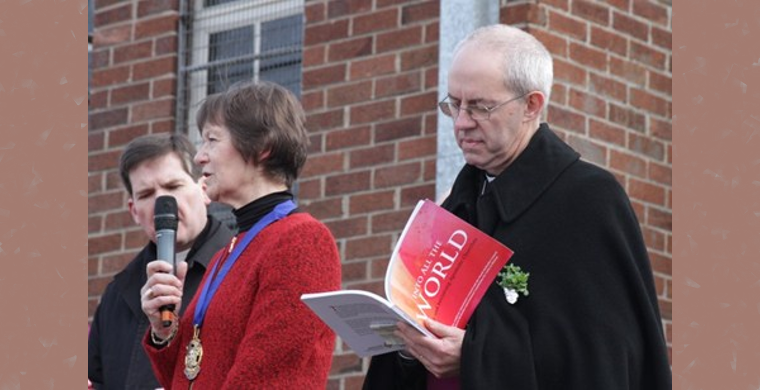Methodists and Anglicans 'close enough for unity'
By Madeleine Davies
CHURCH TIMES
http://www.churchtimes.co.uk
March 20, 2015
LOCATION: DIOCESE OF DOWN & DROMORE
Anglicans and Methodists know enough about each other, and need to stop timidly "watching every careful step", seeking "impossible perfection" before agreeing to unity.
This is the message of a report by the Anglican-Methodist International Commission for Unity in Mission (AMICUM), launched by the World Methodist Vice-President, Gillian Kingston, and the Archbishop of Canterbury on Tuesday.
Into All The World: Being and becoming Apostolic Churches, a report to the Anglican Consultative Council and the World Methodist Council, is the outcome of 20 years of work. It hints at an impatience also noted in last year's report by the Joint Implementation Commission, which warned of "frustration and even boredom" with the Anglican-Methodist Covenant (News, 23 May 2014).
The Anglican co-chair of AMICUM, the Rt Revd Harold Miller, and the Methodist co-chair, the Revd Professor Robert Gribben, write: "We have surely reached the point where we know enough about each other. Those who know Anglicans and Methodists from the outside truly wonder what prevents us from taking the next steps. . .
"If we are honest, we are often willing to be friendly as long as nothing changes. If we do act ecumenically, we do it minimally, watching every careful step. Or, in our unity discussions we ask of each other an impossible perfection. . .
"The Churches themselves are in need of repentance and conversion, of metanoia, which means a willingness to turn from our own self-absorbing, restricting concerns, to Christ alone."
The report argues that "there are no church-dividing differences between us in faith, in ordered ministry, in the succession of such ministries, and in the value of episcopacy." The only remaining barrier to union is, it suggests, "for Methodists and Anglicans to come together under the sign of the historic episcopate, "for that represents the larger history of transmission of which Methodist Churches are already a part".
Into All The World provides examples from around the globe of where unity is already a reality, including united Churches in the Indian sub-continent, and places where bilateral agreements have been developed. Union must be "full" and "visible", the report says. It argues that there is an "inseparable biblical connection between mission and unity", and points to missional challenges, particularly declining congregations in the West.
The Commission's chairmen call on local churches to take on the work. "You must decide whether we have given evidence enough of our unity in Christ to enable you to move forward."
The report's appendix contains "toolkits" with questions for debate at national and local level; and it recommends the creation of a new committee "to oversee and foster relationships".
It notes: "It is very important that each party in a bilateral relationship be honest with themselves, and before God, about any attitude of superiority which they may have about their Church. . . There can be factors of race, wealth, size, style, or culture which lead to a subconscious and unspoken sense of dominating or being dominated. These need to be handled sensitively."
There is also a reference to the need to face "painful things" that have happened in the past rather than avoid them. Other matters to be explored include worship styles ("the danger, if there is no conversation about this, is that the stronger wins"), discipline and authority, and disparity of stipends.
END














